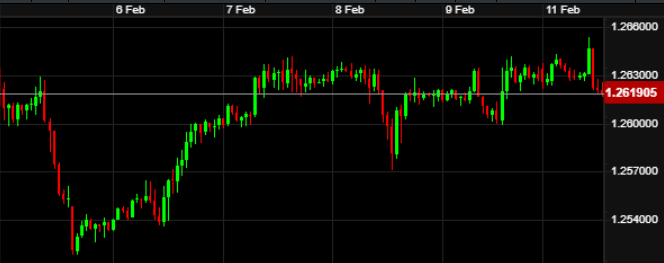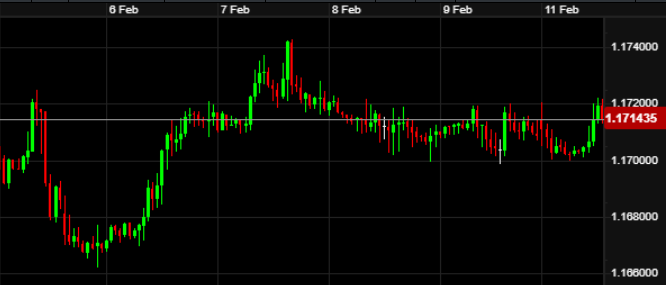ACM Update 12-02-24

A quieter few days of major market data led to sideways trading for GBP-EUR last week, whilst the US Dollar was driven by Federal Reserve narrative. The US rate-setting committee seem wary of cutting interest rates too soon, especially given the impressive performance of the US economy at present.
This week we find out if the UK is already in recession, with the December GDP release on Thursday. Before that, the latest inflation figures from the US and UK, on Tuesday and Wednesday respectively.
UK foreign exchange news was mainly centred around speeches from three of the Bank of England’s monetary policy committee (MPC) last week. Chief Economist, Huw Pill, declared that the idea of lowering interest rates has now become more of a case of if rather than when, expressing the move would be a “reward” for lower inflation.
Elsewhere Deputy Governor Sarah Breeden spoke at a UK Women in Economics event on Wednesday and sang a similar tune. She has now shifted her focus to how long interest rates will need to remain at their current levels, rather than whether they will need to rise further.
Meanwhile, the MPC’s resident hawk Catherine Mann gave a range of clues in her own speech. She stated her vote to raise interest rates ten days ago was not easy, leading markets to believe her hawkish stance may begin to soften soon. Her concern is that energy prices and a lack of economic growth, may lead to inflation not remaining sustainably around 2% anyway.
Mann also echoed the sentiment that the UK will be “a bit later” than its peers in getting inflation back to target, suggesting the current higher for longer mantra is here to stay for a while yet. This offered some support to the pound in what was a fairly flat week.
In terms of data, the Services PMI number for the UK came in above expectation at 54.3 showing expansion in the sector. This was the highest reading since June of last year. In the property market, the latest Halifax HPI figures showed a 1.3% monthly growth in average property prices in January, as the market begins to benefit from lenders offering lower mortgage deals.
In the US, just a range of speeches from Federal Reserve members to choose from also. New committee member Adriana Kugler remains “optimistic” that inflation will continue to decline, but the Fed needs to have more confidence yet that it will continue to slow. “The job is not done yet, but every meeting will be live” was a useful snippet.
Fellow member Thomas Barkin commented that recent US economic data has been remarkable across the board, but patience is required with regards to rate changes.
The often outspoken Raphael Bostic also noted the Fed have made significant progress on reducing US inflation, but there is still work to be done to ensure it gets consistently down to the 2% target. As with other speeches recently, he warned market expectations are still way ahead of the current Federal Reserve policy stance.
Raw data was limited. US weekly Unemployment Claims showed 224k new claims, less than forecast in another good sign for the US economy, despite the previous week being revised up slightly.
Overall, we saw about a 1% range of movement from the best to worst prices, but closed relatively flat for the week come close of business on Friday. With a bigger few days ahead for UK and US data, expect more volatility.
Movements on GBP-USD last week can be seen in the chart below:

For the Eurozone too, not masses of information to choose from. Consumer spending continues to be an issue in the bloc though. The latest round of retail sales data for December showed a month-on-month drop of -1.1%. This was much in line with the same figure we had for the UK recently, where it was suggested consumers took advantage of Black Friday deals in November and did their Christmas shopping early. Unfortunately, the November figures for the EU only showed a 0.3% month-on-month growth too.
Aside from that, Services PMI numbers seemed favourable across the Eurozone. These all came in on or above expectation for January. With French and German numbers still <50, this was enough to keep the overall Eurozone figure in contraction at 48.4.
A somewhat steady week for the pound versus the Euro, as illustrated in the chart below:

The week ahead:
Monday – CHINA BANK HOLIDAYS (all week), Fed Barkin speech (17:00 UK time), BoE Andrew Bailey speech (18:00)
Tuesday – UK Unemployment & Claimant Count (07:00), US CPI Inflation exp 2.9% (13:30)
Wednesday – UK CPI Inflation exp 4.1% (07:00), EU Flash GDP exp 0.0% (10:00), BoE Andrew Bailey testimony (15:00)
Thursday – UK GDP exp -0.2% (07:00), ECB Lagarde speech (08:00), US Retail Sales & Unemployment Claims (13:30), BoE Catherine Mann speech (13:50), Fed Waller speech (18:15)
Friday – UK Retail Sales (07:00), US PPI Inflation (13:30), BoE Huw Pill speech (19:40)
A big week ahead then in the UK, and not just because it is pancake day and Valentines day on Tuesday and Wednesday respectively!
Tuesday’s unemployment data will be a warmup act for UK inflation, which is forecast to nudge back up slightly for what would be a second month in a row. Last month (December) showed 4.0%, whereas the current estimate for the January figure is 4.1%. Given we have a speech from Andrew Bailey on Monday evening, any suggestion from Jerome Powell’s playbook of “the path to lower inflation will not be linear”, will be eagerly awaited.
US inflation numbers are also expected to show Powell & Co’s actions are continuing to bring headline inflation down. Despite last month’s expected blip back up to 3.4% from 3.1%, this time around we forecast a reading of 2.9%. This would bring American CPI inflation under 3% for the first time since March 2021. Despite this being good news, we may see the Dollar weaken as a result, as it would bring the Federal Reserve closer to cutting interest rates.
Arguably the biggest moment of the week will be on Thursday morning where we will find out whether the UK economy did indeed close out 2023 in a mild “technical recession”. With a GDP contraction of -0.1% in Q3 of last year, a poor December number would push Q4 to the same negative figure or worse. The December forecast of -0.2% for the month could well be enough to see a second consecutive negative quarter.
Given 2024 seems to have started more positively though, any recession would be about as short and shallow as they come. UK retail sales close out the week.
Conditions are likely to be volatile, so do ensure to reach out to the team regarding any pending payments or requirements.
Have a great week.